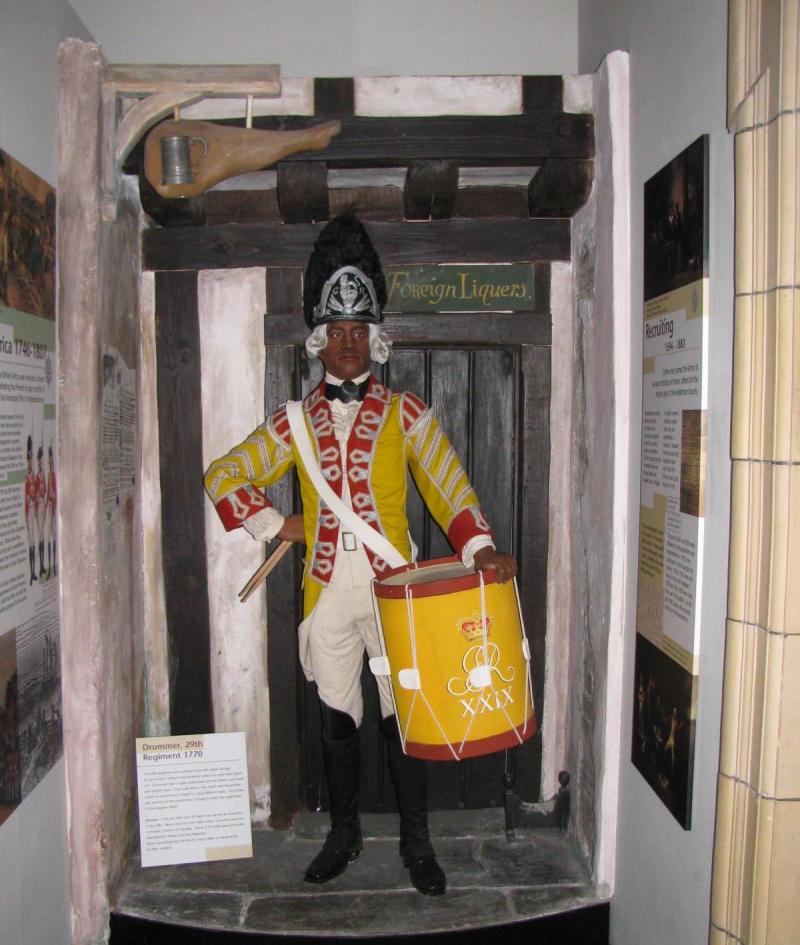“Martial music on the Sabbath”
Back in December 2019 Lance Boos, working on a fellowship at the Massachusetts Historical Society, shared and analyzed a 17 June 1769 letter from Boston’s wardens to Col. Alexander MacKay, senior army officer in town.
The letter concerned an incident the preceding Sunday, six days before. A military band was playing that morning around the time of church services (which of course extended over most of the day).
More specifically:
We can find more context for this incident in the “Journal of the Times” reports that Boston’s Whigs dispatched to newspapers in other colonies to complain about the army presence in their town. The historian Oliver Dickerson collected and published those articles with the title Boston Under Military Rule.
The Whigs complained about martial music on Sundays starting soon after the regiments landed, with the first complaint dated 6 Nov 1768:
On the one hand, the dispatch said, young people lacked the judgment to resist gathering for the music. Even when they expressed their opposition to the soldiers, they did so through misbehavior instead of, say, formal complaints to the army and newspaper essays.
The result proved the Whigs’ main message: the presence of soldiers in the crowded town led to violence, and the London government should have foreseen that. And of course, when describing military abuse, a child was always a useful victim.
TOMORROW: This conflict continues.
The letter concerned an incident the preceding Sunday, six days before. A military band was playing that morning around the time of church services (which of course extended over most of the day).
More specifically:
a Young Gentleman an Inhabitant of the Town, appeared at ye relieving of ye Main Guard who being desired by one of ye Wardens to retire showed a willingness to Comply, but Capt. [Ponsonby] Molesworth of ye 29th Regiment, who was Capt. of ye Guard that was to be relieved, & an other officer Came to him & Insisted upon his tarrying to hear the Musick, Saying he would protect him, & Immediately ordered the fifes to play (in derision, as we Suppose,) what by them is Commonly Called ye Yankee Tune.The three town officials who signed this letter—Thomas Walley, John Joy, and Henry Hill—then asked Mackay to order the troops not to play music during guard changes on Sunday any longer. As wardens, they had civic responsibility to keep the peace on the Sabbath.
We can find more context for this incident in the “Journal of the Times” reports that Boston’s Whigs dispatched to newspapers in other colonies to complain about the army presence in their town. The historian Oliver Dickerson collected and published those articles with the title Boston Under Military Rule.
The Whigs complained about martial music on Sundays starting soon after the regiments landed, with the first complaint dated 6 Nov 1768:
This being Lord’s day, the minds of serious people at public worship were greatly disturbed with drums beating and fifes playing, unheard of before in this land—What an unhappy influence must this have upon the minds of children and others, in eradicating the sentiments of morality and religion, which a due regard to that day has a natural tendency to cultivate and keep alive.Yes, think of the children! About a month later, as of 4 December, the army seemed to accommodate the local authorities’ wish for peace and quiet:
It is observed with pleasure that the guards are now relieved on Lord’s day morning one hour earlier than on other days, which allows the soldiery to attend public worship in season; that there is now much less martial music on the Sabbath then has been heard since the first arrival of the troops.But within a couple of weeks, the problem came to be martial music when the meetinghouses let out, and once again children were at risk:
Last evening after church service, there was a considerable gathering of children and servants, near the Town House, drawn by the music of the fife, &c. which is again heard on the Sabbath, to the great concern of the sober and thoughtful inhabitants; some of the youth’s having behaved so as to displease the officer, orders were given the guard to clear the parade; they marched up with bayonets presented,—one of the lads was pursued by a soldier to some distance, who made a thrust with his bayonet, which passed thro’ his coat, and had he not thrown himself on the ground that instant, its thought he would be run thro’ the body: He has entered a complaint against said soldier, with one of the magistrates of the town.This passage repeats a common Whig trope, blaming disorder on “children,” “servants” (i.e., enslaved people), and “youth’s,” as opposed to “the sober and thoughtful inhabitants” who truly represented the town.
On the one hand, the dispatch said, young people lacked the judgment to resist gathering for the music. Even when they expressed their opposition to the soldiers, they did so through misbehavior instead of, say, formal complaints to the army and newspaper essays.
The result proved the Whigs’ main message: the presence of soldiers in the crowded town led to violence, and the London government should have foreseen that. And of course, when describing military abuse, a child was always a useful victim.
TOMORROW: This conflict continues.


